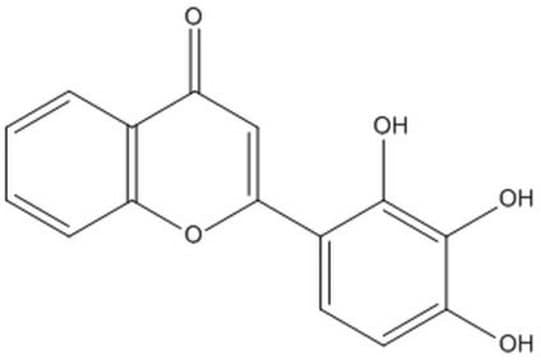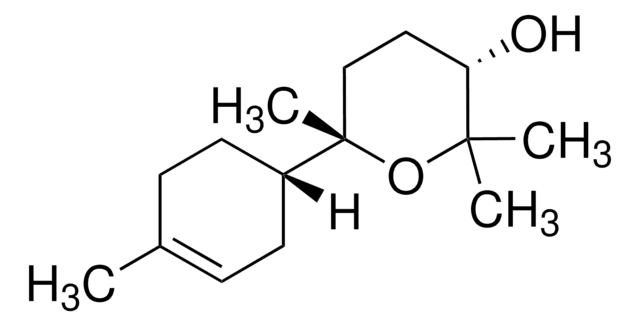73492
trans-β-Farnesene
analytical standard
Synonym(s):
trans-7,11-Dimethyl-3-methylene-1,6,10-dodecatriene
About This Item
Recommended Products
grade
analytical standard
Quality Level
Assay
≥90% (GC)
shelf life
limited shelf life, expiry date on the label
technique(s)
HPLC: suitable
gas chromatography (GC): suitable
application(s)
food and beverages
format
neat
storage temp.
−20°C
SMILES string
[H]\C(CCC(=C)C=C)=C(\C)CC\C=C(\C)C
InChI
1S/C15H24/c1-6-14(4)10-8-12-15(5)11-7-9-13(2)3/h6,9,12H,1,4,7-8,10-11H2,2-3,5H3/b15-12+
InChI key
JSNRRGGBADWTMC-NTCAYCPXSA-N
Looking for similar products? Visit Product Comparison Guide
Related Categories
General description
Application
- Secondary metabolite profiling of various plant parts collected from 82 plants belonging to 21 different cannabis strains using gas chromatography-mass spectrometry (GC-MS) for sterols and terpenoids (mono-, sesqui-, tri-), and high-performance liquid chromatography (HPLC) with UV and mass spectrometric (MS) detection for flavonoids
- Gas chromatographic analysis of a total of 163 compounds in the essential oil samples extracted from the leaves and flowers of Lantana camara, in combination with detection techniques of mass spectrometry (MS) and flame ionization detection (FID)
- Simultaneous determination of 49 compounds from the essential oil samples obtained from the methanolic extracts of dried leaves and flowers of C. macropodum by GC-FID and GC-MS methods
- Identification and quantification of 31 volatile organic compounds from the flowers of P. Nobby’s Pacific Sunset using DVB/CAR/PDMS fibers in the solid-phase microextraction (SPME) technique for the sample enrichment followed by their GC-MS analysis
Other Notes
Signal Word
Danger
Hazard Statements
Precautionary Statements
Hazard Classifications
Asp. Tox. 1
Storage Class Code
10 - Combustible liquids
WGK
WGK 3
Flash Point(F)
230.0 °F
Flash Point(C)
110 °C
Personal Protective Equipment
Choose from one of the most recent versions:
Already Own This Product?
Find documentation for the products that you have recently purchased in the Document Library.
Customers Also Viewed
Protocols
Fast GC analysis of sweet orange essential oil in hexane. Key components identified includes: β-Farnesene; α-Huµlene; Germacrene D; (+)-Valencene; Bicyclogermacrene; (+)-δ-Cadinene
Our team of scientists has experience in all areas of research including Life Science, Material Science, Chemical Synthesis, Chromatography, Analytical and many others.
Contact Technical Service










